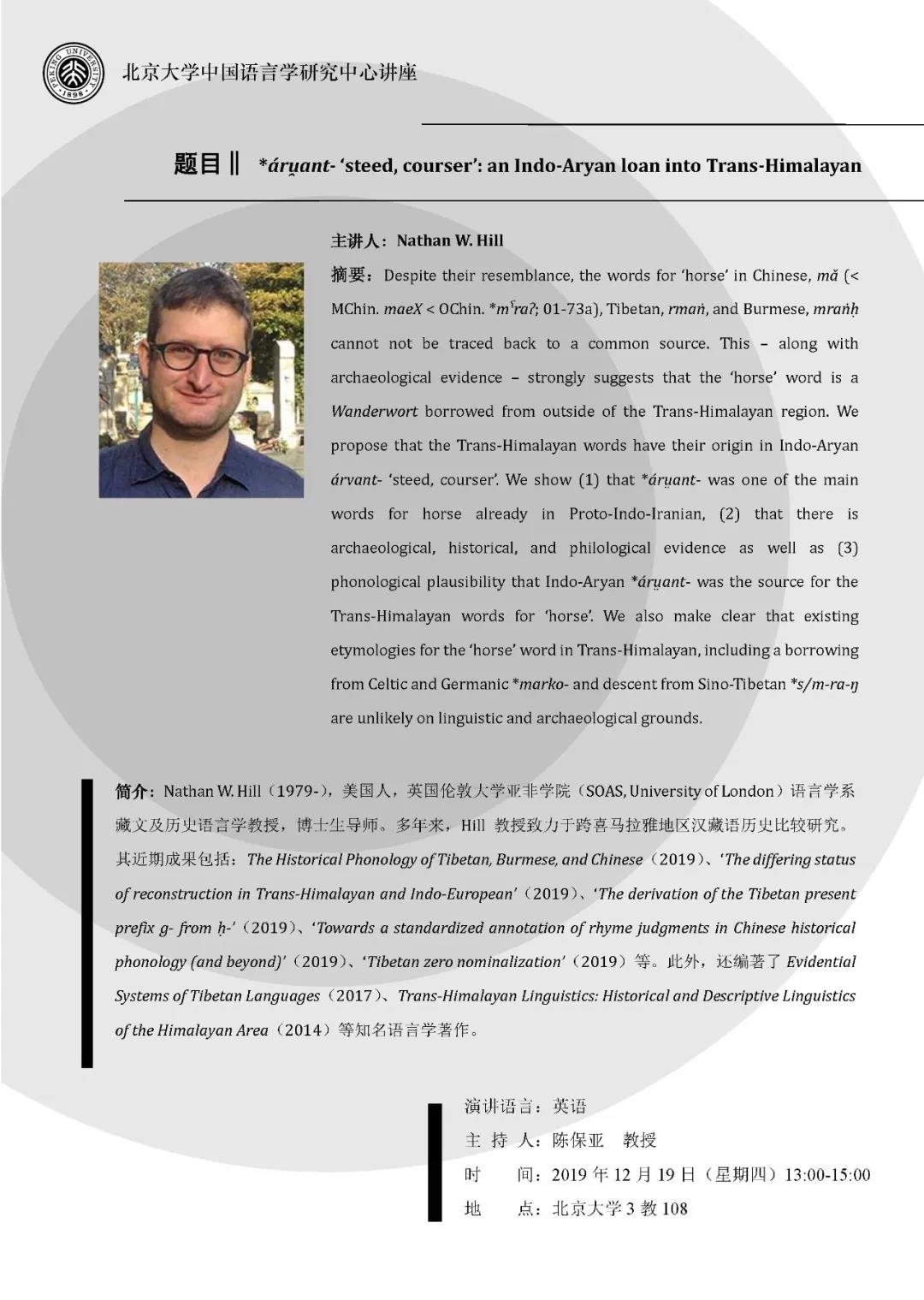
时 间: 2019.12.19
地 点: 中国 北京 北京大学3教108
主办单位: 北京大学中国语言学研究中心
与会人数: 待定
讲座题目:*áru̯ant- ‘steed, courser’: an Indo-Aryan loan into Trans-Himalayan
讲座海报:
 主讲人:
主讲人:
Nathan W. Hill 英国伦敦大学亚非学院语言学系藏文及历史语言学 教授
主持人:
陈保亚 北京大学中文系教授、北京大学中国语言学研究中心主任
时间及讲座地点:
2019年12月19日13:00—15:00
北京大学 3教108
演讲语言:
英语
内容简介:
Despite their resemblance, the words for ‘horse’ in Chinese, mǎ (< MChin. maeX < OChin. *mˤraʔ; 01-73a), Tibetan, rmaṅ, and Burmese, mraṅḥ cannot not be traced back to a common source. This – along with archaeological evidence – strongly suggests that the ‘horse’ word is a Wanderwort borrowed from outside of the Trans-Himalayan region. We propose that the Trans-Himalayan words have their origin in Indo-Aryan árvant- ‘steed, courser’. We show (1) that *árṳant- was one of the main words for horse already in Proto-Indo-Iranian, (2) that there is archaeological, historical, and philological evidence as well as (3) phonological plausibility that Indo-Aryan *árṳant- was the source for the Trans-Himalayan words for ‘horse’. We also make clear that existing etymologies for the ‘horse’ word in Trans-Himalayan, including a borrowing from Celtic and Germanic *marko- and descent from Sino-Tibetan *s/m-ra-ŋ are unlikely on linguistic and archaeological grounds.
主讲人简介:
Nathan W. Hill(1979-),美国人,英国伦敦大学亚非学院(SOAS, University of London)语言学系藏文及历史语言学教授,博士生导师。多年来,Hill教授致力于跨喜马拉雅地区汉藏语历史比较研究。其近期成果包括:The Historical Phonology of Tibetan, Burmese, and Chinese(2019)、‘The differing status of reconstruction in Trans-Himalayan and Indo-European’(2019)、‘The derivation of the Tibetan present prefix g- from ḥ-’(2019)、‘Towards a standardized annotation of rhyme judgments in Chinese historical phonology (and beyond)’(2019)、‘Tibetan zero nominalization’(2019)等。此外,还编著了Evidential Systems of Tibetan Languages(2017)、Trans-Himalayan Linguistics: Historical and Descriptive Linguistics of the Himalayan Area(2014)等知名语言学著作。